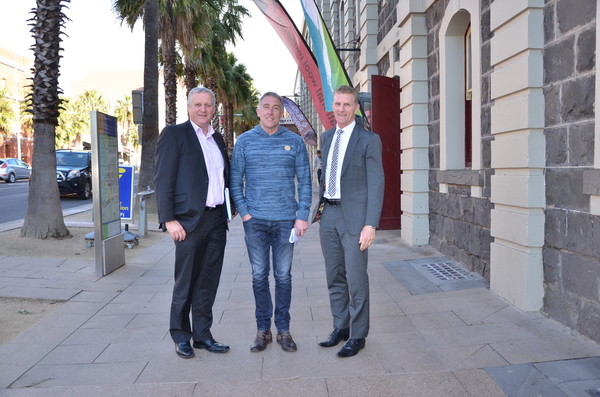
By VICTORIA STONE-MEADOWS
A high-tech strategy to reduce alcohol-fuelled violence around central Geelong nightclubs has achieved success, according to stakeholders.
Hospitality, police and council representatives have declared victory over drunken thugs almost 10 years after a brutal sex assault inspired initiatives to make the city centre safer after dark.
Corio’s Luke Benjamin Gill was sentenced to 17 years’ jail after leaving his bloodied victim for dead in an alcove off Little Malop Street’s mall in December 2006.
The attack heightened ongoing calls for action on violence in central Geelong.
Venues responded with licence-scanning technology, live-monitored CCTV, inter-venue communication and shared lists of banned troublemakers.
The initiatives built on a Geelong Liquor Accord which was established in the 1990s, bringing together licensees, police and council to work on harm-minimisation strategies.
The anti-violence technology had been a success, said prominent local hospitality figure Darren Holroyd, who was a key player in development of the strategy as a leader of Geelong Nightlife Association.
“At that time the parties all got together – liquor licencing, police, council and the safety committee – and worked very hard on these systems,” Mr Holroyd said.
“Over the last few years they have made a big difference to the safety of patrons.”
Other stakeholders agreed with Mr Holroyd’s assessment.
The combination of the technology and liquor accord had allowed stakeholders to prevent violence before it escalated, said City Hall investment and attraction general manager Brett Luxford.
The technology allowed venues and police to act on violence in real time, Mr Luxford said.
“It has absolutely made a difference.
“Each night there are about 10 situations on average we can intervene before the violence gets out of hand.
“The aim of all this is preventative though we still use this technology for prosecutions after violence has occurred.”
The ability for stakeholders to work and communicate together was a big success of the anti-violence strategy, said Geelong Liquor Licensing Sergeant Tim Bennett.
“It enables police to have an open forum between accord members to discuss current local issues from all sides of the table and work together to resolve these problems,” Sgt Bennett said.
“This can be anything from trends in crime and anti-social behaviour through to various venues sharing between them successful strategies for staff and security to deal with problem patrons.”
Sixty-eight individuals are on the strategy’s banned list after violent incidents in city centre venues.






